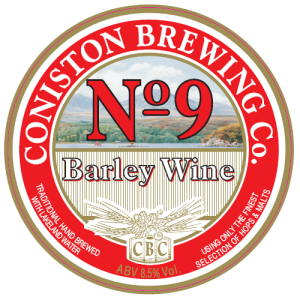
Coniston No 9 Barley Wine
ABV: 8.5%
Origin: Coniston, Cumbria, England
Website: www.conistonbrewery.com
The results of CAMRA’s annual Champion Beer of Britain competition regularly provoke dark mutterings. Usually I hear them from trendy young hopheads convinced that the judging panel favours supposedly boring traditional low gravity styles but this year it was the turn of the old guard.
“What’s the point of picking an 8.5% beer that none of my customers are going to touch?” said a veteran pub landlord to me soon after the 2012 results were announced at the Great British Beer Festival trade session. Well, other than the obvious point that the UK’s best known national beer competition isn’t staged purely for the benefit of that particular gentleman and his customers, there’s something to be said for consumer education. And if encouraging the country’s supposed millions of nothing-over-4.5% session drinkers to experiment with something that can’t be necked down in seconds is a worthwhile aspiration, then Coniston No 9 is a good place to start.
I sampled the beer in January 2012 at the National Winter Ales Festival in Manchester, where it claimed a relatively modest third place in the Champion Winter Beer of Britain judging, qualifying it for consideration alongside the other category medallists as a potential overall champion in August. In Manchester I was also finally introduced to Coniston’s owner and head brewer Ian Bradley, another of those great enthusiasts so prevalent in the industry.
Set up in 1995 when Ian’s father decided the family’s pub, the Black Bull at Coniston in the English Lake District, would benefit from own brewed beer, the brewery rapidly won accolades, It first claimed Champion Beer of Britain in 1998 for its beautifully balanced and easy going golden bitter Bluebird. A bottle conditioned contract brewed version soon enjoyed national distribution.
No 9 is so called as it was the ninth beer Coniston brewed and like many of the others it was designed in collaboration with busy brewing consultant David Smith. It uses only English ingredients – pale and crystal malts and Challenger and Goldings hops.
The beer is brewed in small runs on an occasional basis and matured at the brewery for three months before being kräusened with fresh Bluebird to reawaken the yeast. Most then goes for bottling – originally the bottled beer was filtered but short run bottle conditioning is now taking place – and a little into casks.
It was the cask version that won the beer its 2012 medals. The sample I tried in Manchester was amber gold, with a very slight head and a rich aroma of toffee, orange and a whiff of spirit. A very full and sweetish orange-tinged palate had wood, mint and sherry notes from maturation and a haze of hops far back.
The very long, smooth and subtle finish warmed the mouth with woody vanilla notes and emerging grapefruit and orange peel bitterness, with plenty of fruity interest. Overall this was a traditional take on the style – very much like a strong bitter – but beautifully integrated and highly accomplished.
Ian later sent me a (filtered) bottle which if anything was even better. This version had a livelier condition with a fine bubbly white head, and notes of wood, sultana and marzipan in the sweetish aroma.
Orange was evident once again on a sweet but smooth and fine palate, alongside sherryish alcohol, salted nuts, herbal hops and gently building warmth. A long, lightly sweet and still smooth finish developed a big rooty hop flourish.
Ian, also a keen motorcyclist and motorsport fan who knows a bit about winning and losing, had been heard remarking rather ruefully in recent years that he’d “peaked early” as a brewer with his 1998 win. So walking off with a second well deserved gold medal 14 years later must have been an unexpected pleasure.
Meanwhile, the nothing-over-4.5% brigade don’t know what they’re missing.

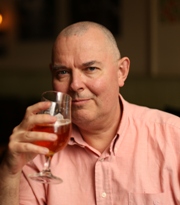
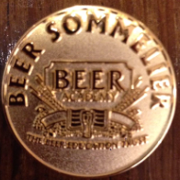
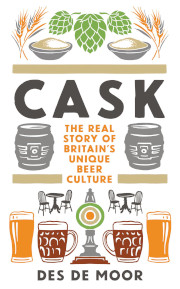
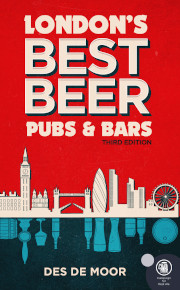
Leave a Reply